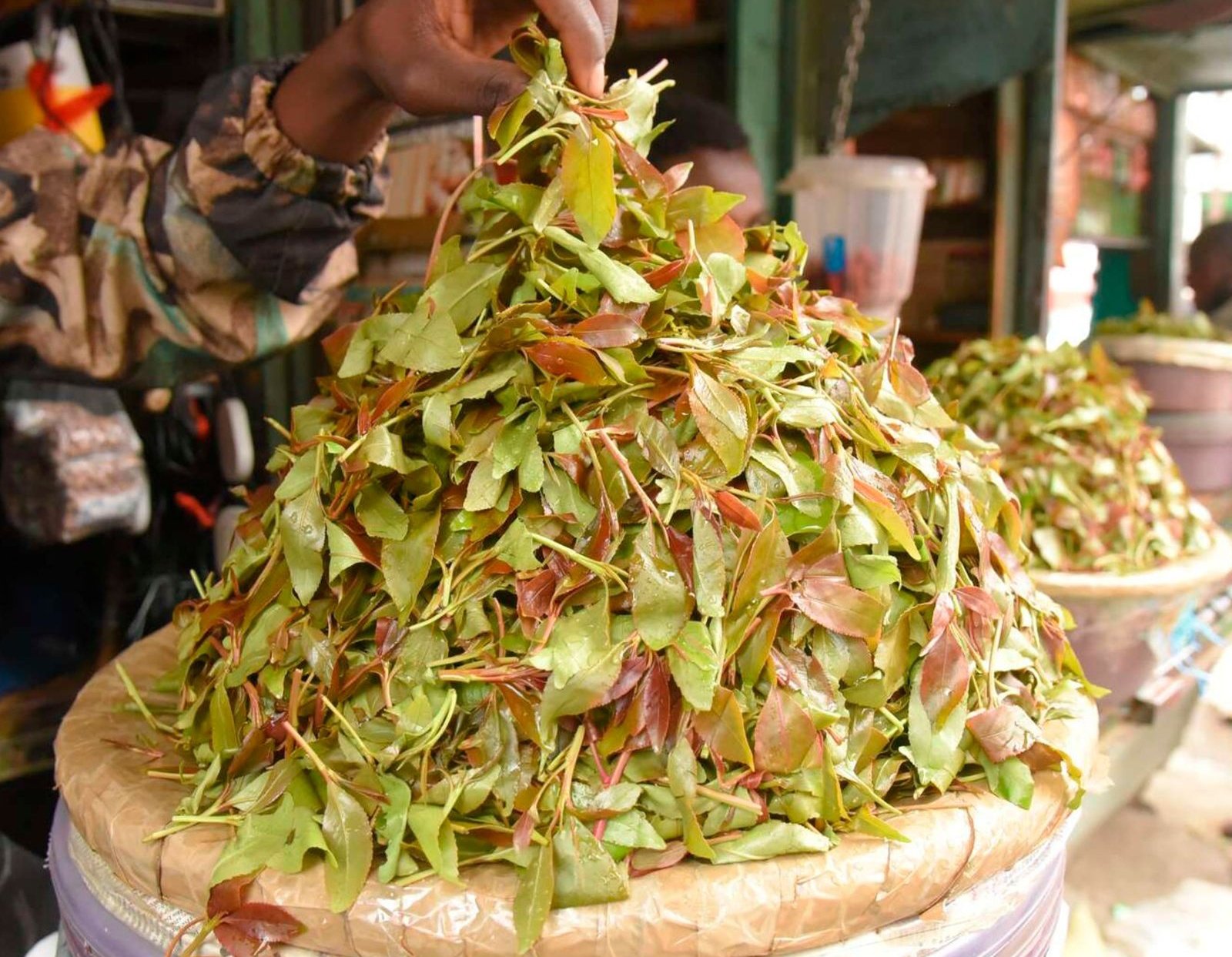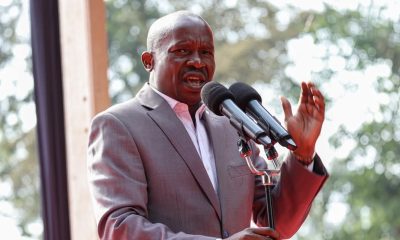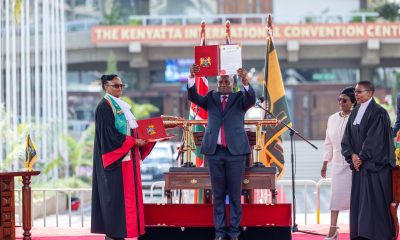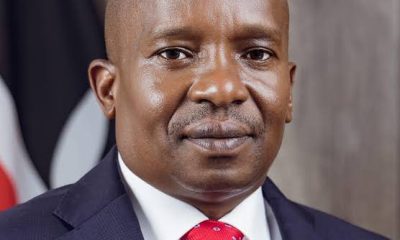Politics
Kilifi North MP Baya Drops Muguka Ban Bill after Pressure from Kindiki and Embu Leaders

Kilifi North MP Owen Baya has withdrawn his controversial Crops (Amendment) Bill, 2025, which aimed to strip Muguka of its legal recognition in Kenya.
The decision follows a closed-door meeting with Deputy President Kithure Kindiki and leaders from Embu County, one of the main Muguka-producing regions.
The withdrawal not only raises questions about political pressure but also highlights the deep-rooted economic and cultural tensions surrounding the stimulant crop.
As the Muguka ban debate rages on, Baya’s reversal underscores the complexity of balancing public health, local livelihoods, and national agricultural priorities.

The withdrawal of the Crops (Amendment) Bill, 2025, by Kilifi North MP Owen Baya marks a pivotal moment in the ongoing national discourse around the Muguka ban. [Photo: Courtesy]
Political Pressure Halts Attempt to Ban Muguka from Scheduled Crop Status
The attempted legislative move to delist Muguka from the Crops Act has ignited fierce debate over Kenya’s agricultural and public health policies. The bill, tabled in Parliament on May 22, 2025, by Kilifi North MP Owen Baya, sought to amend the law by separating Muguka from its botanical cousin Miraa.
If successful, it would have removed Muguka’s status as a scheduled crop, stripping it of the protections that currently prevent county governments from banning its trade.
Baya’s proposal was widely seen by coastal leaders as a much-needed step to curb the harmful impact of Muguka, especially in regions such as Mombasa and Kilifi, where the crop has been linked to widespread social and health problems.
Local authorities had already taken action: Mombasa and Kilifi had imposed outright bans in May 2024, while Kwale opted for punitive taxation. However, the national government has stood firm on its stance.
President William Ruto had previously lashed out at counties attempting to outlaw the stimulant, insisting that Muguka remains protected under national law. He even allocated Ksh500 million in the 2024/2025 budget to support its farming and value chains.
Deputy President Kindiki, echoing the president’s position, intervened directly in the legislative process. Following a request by Embu County leaders—who represent one of the major production regions for Muguka—Kindiki summoned Baya for a high-level meeting. By the end of the session, Baya agreed to withdraw his private member’s bill.
Kindiki praised the decision, stating, “The Hon Baya has graciously agreed to drop his legislative proposal,” and later confirmed meetings with Embu Governor Cecily Mbarire and other county leaders to safeguard the region’s agricultural products—including tea, coffee, macadamia, and Muguka.
Coastal Counties Demand Relief from Muguka’s Health and Social Fallout
The fight over Muguka goes beyond legislation—it reflects a growing rift between production and consumption zones. In coastal regions like Mombasa, Kilifi, and Kwale, the Muguka ban enjoys popular support.
Local leaders and residents argue that the substance contributes to a myriad of issues—ranging from increased school dropout rates to oral and gastrointestinal health problems.
Medical professionals in the region have repeatedly raised alarms over the long-term health effects of Muguka, especially on youth and vulnerable populations.
These counties sought to act within their devolved mandates, implementing bans or fiscal barriers to limit the sale of the crop. But the national government sees things differently. By maintaining Muguka’s scheduled status, Nairobi effectively shields it from county-level restrictions.
This top-down approach not only fuels regional resentment but also limits local governments’ ability to address public health crises they attribute to Muguka use.
For Baya, a legislator from one of the affected coastal counties, the bill was an attempt to reclaim local control. Its withdrawal now leaves those regions with fewer options to regulate or reduce the crop’s prevalence within their borders.
Muguka Remains Legal but National Debate Far from Over
Although Baya’s retreat has handed a short-term win to Embu’s pro-Muguka lobby, the broader debate is far from settled. With Muguka firmly entrenched in national agricultural policy and backed by significant financial commitments, reversing its legal status now appears nearly impossible—at least under the current administration.
Yet, public outcry from consumption-heavy regions continues to intensify. Advocates for health and youth protection are already calling for alternative mechanisms to regulate or reduce Muguka usage without contravening national protections.
Meanwhile, political actors must now contend with the optics of a government willing to override local autonomy in favor of preserving agricultural revenues. The optics of Baya’s sudden about-face following a high-level political meeting have fueled suspicions of coercion or political bargaining behind closed doors.
Ultimately, the Muguka ban controversy illustrates the growing pains of Kenya’s devolved system. It lays bare the friction between national policy and local realities, especially when public health, agriculture, and politics collide.
Kenya Insights allows guest blogging, if you want to be published on Kenya’s most authoritative and accurate blog, have an expose, news TIPS, story angles, human interest stories, drop us an email on [email protected] or via Telegram
-

 Grapevine1 day ago
Grapevine1 day agoAlleged Male Lover Claims His Life Is in Danger, Leaks Screenshots and Private Videos Linking SportPesa CEO Ronald Karauri
-

 Lifestyle4 days ago
Lifestyle4 days agoThe General’s Fall: From Barracks To Bankruptcy As Illness Ravages Karangi’s Memory And Empire
-

 Americas1 week ago
Americas1 week agoEpstein Files: Bill Clinton and George Bush Accused Of Raping A Boy In A Yacht Of ‘Ritualistic Sacrifice’
-

 Business2 weeks ago
Business2 weeks agoCooking Fuel Firm Koko Collapses After Govt Blocks Sh23bn Carbon Deal
-

 Business1 week ago
Business1 week agoABSA BANK IN CRISIS: How Internal Rot and Client Betrayals Have Exposed Kenya’s Banking Giant
-

 Investigations6 days ago
Investigations6 days agoEpstein Files: Sultan bin Sulayem Bragged on His Closeness to President Uhuru Then His Firm DP World Controversially Won Port Construction in Kenya, Tanzania
-

 Business1 week ago
Business1 week agoKRA Can Now Tax Unexplained Bank Deposits
-

 News1 week ago
News1 week agoAUDIT EXPOSES INEQUALITY IN STAREHE SCHOOLS: PARENTS BLED DRY AS FEES HIT Sh300,000 AGAINST Sh67,244 CAP

























